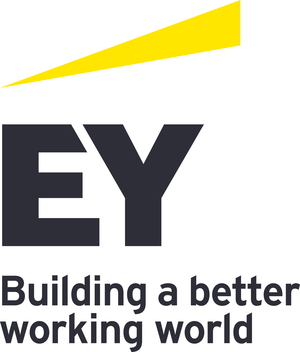WASHINGTON, Aug. 19, 2014 /PRNewswire/ -- US businesses paid $671 billion in total state and local taxes in fiscal year 2013, according to an annual study prepared by Ernst & Young LLP in conjunction with the Council On State Taxation (COST) that was released today. State business taxes grew 4.7% compared to local tax growth of 3.7%, representing the third consecutive year of growth for both categories. In FY2013, business taxes accounted for 44.9% of all state and local taxes. While this is the lowest share of total state and local taxes since FY2006, the business share has remained relatively stable and peaked at 45.7% in FY2007, less than one percentage point different from the current share.
"The change in business taxes suggests relatively broad, yet still gradual, economic recovery," said Andrew Phillips, a principal in Ernst & Young LLP's Quantitative Economics and Statistics group (QUEST) and director of the firm's Regional Economics practice. "We saw most categories of business taxes rise in FY2013. In most states, increases were due to growth in property values, business incomes, and transactions subject to the sales tax."
The state and local business tax estimates presented in the study reflect tax collections from July 2012 through June 2013 and include: business property taxes; sales and excise taxes paid by businesses on their input purchases and capital expenditures; gross receipts taxes; corporate income and franchise taxes; business and corporate license taxes; unemployment insurance taxes; individual income taxes paid by owners of non-corporate (pass-through) businesses; and other state and local taxes that are the statutory liability of business taxpayers.
The states with the highest state and local business tax growth in 2013 are North Dakota (29.9%), Hawaii (10.4%), Mississippi (7.7%), Texas (7.7%) and Utah (7.5%). The states with the largest decreases in tax collections are Alaska (-23.7%), Louisiana (-6.5%), Wyoming (-5.1%), Kansas (-2.6%) and Maine (-0.6%).
Business property taxes and sales tax on business inputs are the largest components of total state and local business taxes. Business property taxes increased 3.7% in FY2013, a gain of $8.5 billion. Property taxes remain by far the largest state and local tax paid by businesses, accounting for 36.1% of the total. General sales taxes on business inputs and capital investment totaled $139.8 billion, or 20.8% of state and local business taxes. While overall sales taxes increased 3.8%, general sales taxes paid by businesses remained flat at the local level. Individual income taxes on pass-through business income accounted for 5.5% of total state and local business taxes. Individual income taxes on business income grew 13.2%, the highest rate of any tax in FY2013.
State and local corporate income tax collections grew 8.4% from the prior year to $53.3 billion, or 7.9% of all state and local business taxes. FY2013 marked the third consecutive year of corporate income tax growth, which has been the slowest of the major types of business taxes to return to pre- recession levels. In FY2013, state and local corporate income tax collections were still nearly 13% below the prior peak that occurred in 2007, with 28 states are collecting less corporate income tax revenue than they were at that time.
The study finds that businesses continue to pay more in state and local taxes than governments spend on services that benefit businesses. On average, businesses paid $3.26 for every dollar of government spending benefiting businesses, assuming that education spending does not benefit local businesses. An alternate assumption (i.e., that half of education spending benefits local businesses) still results in businesses paying 20% more in taxes than the cost of state and local government spending benefiting business.
"Given growth in state and local tax bases, many states adopted reductions in business taxes in 2013 and 2014 designed to encourage economic growth," said Douglas L. Lindholm, President and Executive Director of COST. "It will be interesting to see how this impacts the states' budgets in the coming year."
A copy of the study is available at www.ey.com/us/salt and www.cost.org. Click here to download.
QUEST is a group of economists, statisticians, survey specialists and tax policy analysts within EY's National Tax Practice, located in Washington, DC. QUEST provides quantitative advisory services and products to private and public sector clients that enhance business processes, support regulatory compliance, analyze proposed policy issues and provide litigation support.
COST is a nonprofit trade association based in Washington, DC. COST was formed in 1969 as an advisory committee to the Council of State Chambers of Commerce and today has an independent membership of nearly 600 major corporations engaged in interstate and international business. COST's objective is to preserve and promote the equitable and nondiscriminatory state and local taxation of multijurisdictional business entities.
About EY
EY is a global leader in assurance, tax, transaction and advisory services. The insights and quality services we deliver help build trust and confidence in the capital markets and in economies the world over. We develop outstanding leaders who team to deliver on our promises to all of our stakeholders. In so doing, we play a critical role in building a better working world for our people, for our clients and for our communities.
EY refers to the global organization, and may refer to one or more, of the member firms of Ernst & Young Global Limited, each of which is a separate legal entity. Ernst & Young Global Limited, a UK company limited by guarantee, does not provide services to clients. For more information about our organization, please visit ey.com.
This news release has been issued by Ernst & Young LLP, a member firm of EY serving clients in the US.
Logo - http://photos.prnewswire.com/prnh/20130701/NY40565LOGO-b
SOURCE EY
WANT YOUR COMPANY'S NEWS FEATURED ON PRNEWSWIRE.COM?
Newsrooms &
Influencers
Digital Media
Outlets
Journalists
Opted In





Share this article